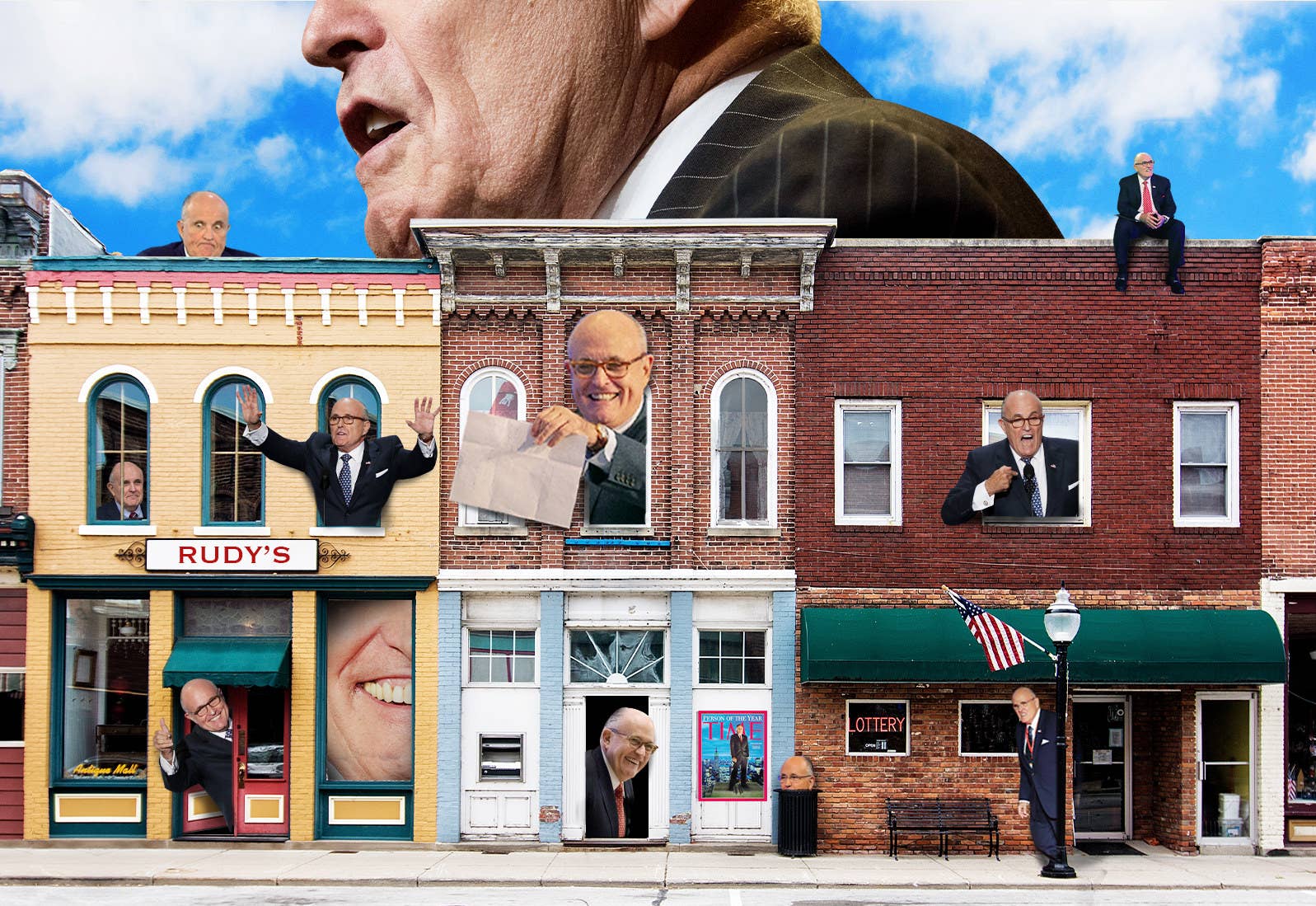
“I know you want to hear from Rudy Giuliani,” Oprah Winfrey told the country from Yankee Stadium in late September 2001, just after Plácido Domingo sang “Ave Maria” at a prayer service following that month’s terrorist attacks. Giuliani, Oprah said, is “a man whose extraordinary grace under pressure in the days since this devastating attack has led him to be called America's mayor.”
It takes deep concentration now to remember a time when Americans at large wanted to hear from Giuliani (to say nothing of Plácido Domingo). But in the days after 9/11, Giuliani wasn’t Donald Trump’s omnipresent barker. He wasn’t the mayor who surprised his wife by announcing a separation at a press conference, the mayor of stop-and-frisk policing, or the overseer of a crackdown on people who are homeless. He was the mayor who managed the response to an unbelievable crisis, who took it upon himself to try to console his city and country.
“We find strength in our diversity,” Giuliani said in his speech at Yankee Stadium, surrounded by religious and political leaders. “We're a city where people look different, talk different, think different. But we're a city of one, with all of the people at the World Trade Center and with all of America. And we love our diversity, and we love our freedom.”
It was a vision of New York City, and of the United States, that was comforting and inspiring to a dazed country. It was aspirational when Americans were feeling bottomless. In the background, when Giuliani finished his speech and took his seat, you could see Sen. Chuck Schumer applauding, and, next to him, then-senator Hillary Clinton.
Giuliani rose to an American moment. Just about two decades later, he is the face of another one. His current act as Trump's globe-hopping investigator and defender whose actions have helped spur an impeachment inquiry in Congress is a legacy-altering role, and probably his grandest. He may have gotten the title in 2001, but Rudy Giuliani is truly America’s mayor in 2019.
As much as Giuliani spoke to the resilience Americans wanted to feel in the fall of 2001, he is now speaking to the mania many of us feel in the fall of 2019. The US in 2019 is less aspirational and more a 75-year-old man shouting warnings of treason from a cable news sofa. It’s less “city of one” and more “I will be the hero.” It’s less “extraordinary grace” and more inopportune spittle.
The US in 2019 is yelling non sequiturs at you on the phone because you aren’t asking the right questions. It is demanding your attention, even though you’re not really sure what it’s demanding. It is paranoid, anxious, and somehow winking.
America’s mayor has time on his hands and unclear incentives. He is on Fox News threatening to sue co-panelists for libel. He’s on CNN saying he didn’t ask Ukraine to investigate Joe Biden, then saying he did, then saying he didn’t, all within about 30 seconds. He’s on Twitter sharing large-format text messages from government officials with heavy implications that you would understand if only you had your eyes open. He is dancing in the Hamptons, he says he is launching a podcast, he is in divorce court fighting over Christmas decorations.
He is everywhere at once, inexhaustible, our scattershot attention made lifelike. At a moment in US culture when teens are wearing scrunchies and the 1990s are very cool again, Giuliani — a man whose cigar habits and general style still scream 1998 — is dominant.
But Giuliani isn’t just representing the nation’s psyche. Like a most capable mayor, he is guiding it.
He has taken a story that seemed simple and made it complex. Democrats in Congress rallied around the Ukraine story as a basis for impeachment proceedings against the president because it felt so straightforward: Trump pressured Ukraine’s president to investigate Biden, and there’s a White House–approved, five-page rough transcript of the call that anyone can read within 10 minutes. Giuliani, on TV and in interviews with reporters, is hanging so much detail and history onto that story that those five pages are beginning to gain the foggy heft of the 448-page Mueller report.
What does the State Department have to do with what Giuliani was doing in Ukraine at Trump’s behest? What does Paul Manafort? What about that conspiracy theory about Hillary Clinton and the DNC’s server? How many prosecutors general can one country even have within four years? There are so many people involved, many of them raised by Giuliani himself, that it can be hard to remember what anyone is talking about. And that’s all aside from the spotlight Giuliani has helped train on Biden’s family, something that would have inevitably come at some point in the campaign, but has caught Biden vulnerable.
It’s tempting to brush Giuliani off as embarrassing, to gawk at his easy grandiosity with reporters, or to look forward to his inevitable clash with Congress as a moment of self-immolation. But you can’t entirely discount the idea that, like the self-obsessed, media-driving president he sometimes works for, Giuliani might know what he’s doing; that he knows he has our attention and still knows how to keep it to get what he wants. There’s power in matching the US’s chaos with your own and Pied Pipering it over a cliff. ●
